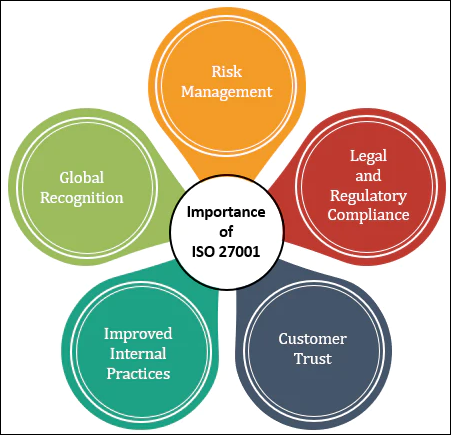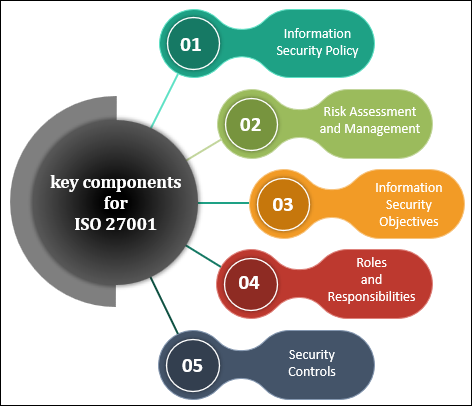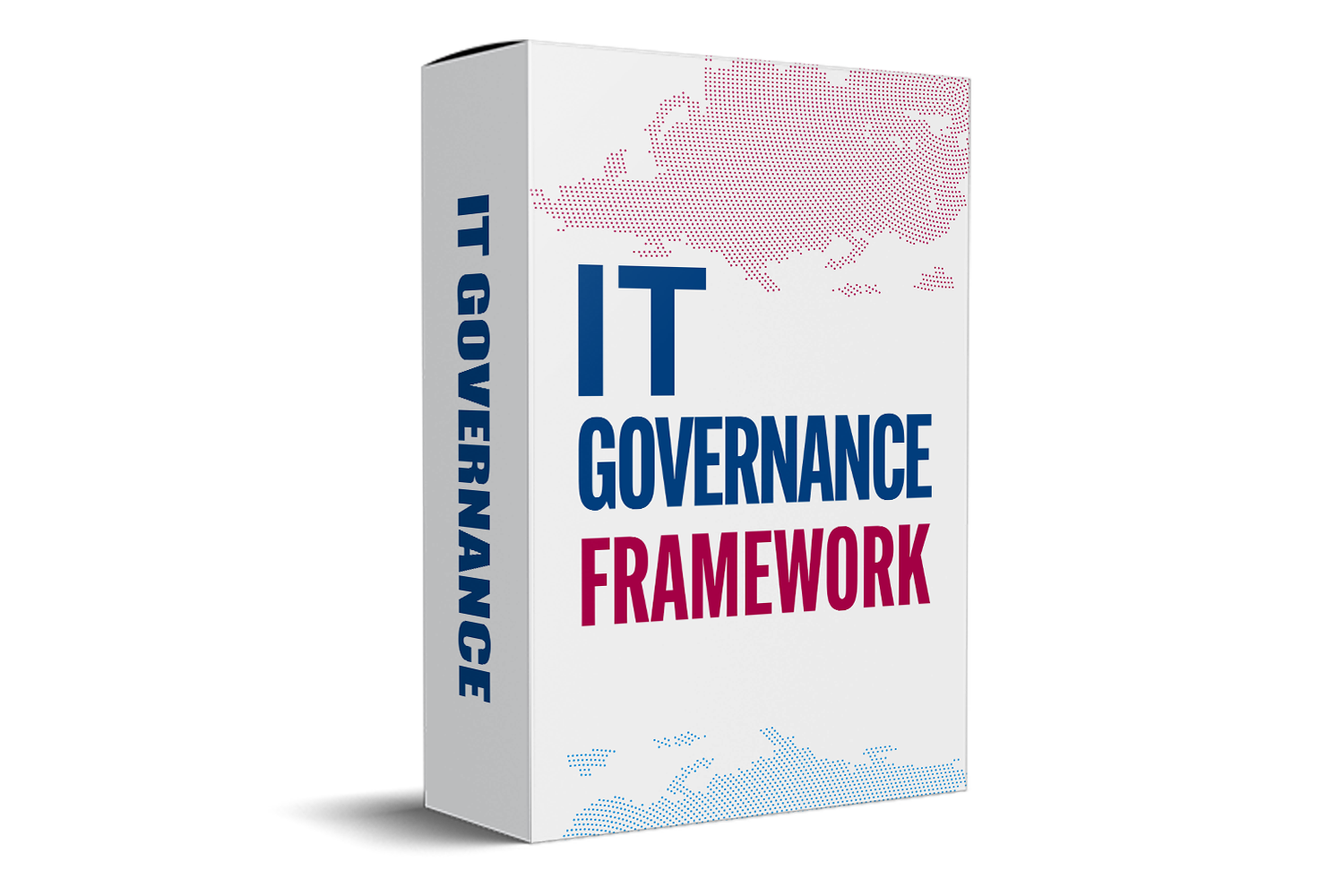ISO 27001 What Is It?
ISO 27001, or the International Organization for Standardization 27001, is a globally recognized framework for information security management systems (ISMS). It provides a systematic approach to managing sensitive data, ensuring the confidentiality, integrity, and availability of information within organizations. ISO 27001 offers a comprehensive set of best practices and guidelines to help businesses protect their information assets, minimize risks, and meet regulatory requirements. In an increasingly digital and interconnected world, ISO 27001 plays a crucial role in helping organizations navigate the complex landscape of information security and ensure the resilience of their information systems.

Importance of ISO 27001 What Is It ?
- Global Recognition: ISO 27001 is globally recognized as the benchmark for information security management systems (ISMS). Achieving ISO 27001 certification demonstrates an organization's commitment to adhering to international standards for protecting sensitive data.
- Risk Management: By identifying and assessing information security risks, organizations can take proactive measures to mitigate these risks, reducing the likelihood of data breaches and their associated consequences.
- Legal and Regulatory Compliance: ISO 27001 helps organizations meet legal and regulatory requirements related to data protection and privacy. Compliance with ISO 27001 often aligns with various data protection laws, such as GDPR in Europe, HIPAA in the healthcare industry, and others.
- Customer Trust: ISO 27001 certification enhances customer trust. Clients and partners often seek assurance that their sensitive information will be handled securely. ISO 27001 certification assures stakeholders that an organization follows best practices in safeguarding data.
- Improved Internal Practices: Implementing ISO 27001 involves defining and documenting information security policies and procedures. This can lead to better internal practices, increased awareness among employees, and a culture of security consciousness.
- Incident Response and Recovery: ISO 27001 requires organizations to establish incident response and recovery plans. This ensures that in the event of a security breach or incident, the organization can respond effectively, minimize damage, and recover quickly.
- Cost Savings: While implementing ISO 27001 can involve initial costs, it often results in long-term cost savings. By reducing the risk of data breaches and incidents, organizations can avoid costly legal penalties, fines, and reputational damage.
- Data Protection: With the increasing volume of sensitive information being collected and processed, ISO 27001 helps organizations protect data from unauthorized access, disclosure, or alteration, preserving the confidentiality, integrity, and availability of information.
- Continuous Improvement: ISO 27001 encourages a cycle of continuous improvement. Through regular audits and reviews, organizations can identify areas for enhancement, making their information security practices more robust and adaptive to evolving threats.
key components of ISO 27001 What Is It ?
- Information Security Policy:An organization must establish an information security policy that provides a high-level framework for its ISMS. This policy defines the organization's commitment to information security and outlines its objectives and principles.
- Risk Assessment and Management:Risk assessment is a fundamental component. It involves identifying and evaluating information security risks that the organization faces. After assessing these risks, the organization must develop a risk management process to mitigate, transfer, or accept these risks.
- Information Security Objectives:Clear and measurable objectives should be set to guide the implementation of ISO 27001. These objectives should align with the organization's information security policy and be designed to reduce risks and improve overall security.
- Roles and Responsibilities:Clearly defined roles and responsibilities are crucial. Assigning specific roles and authorities for information security tasks ensures that everyone within the organization understands their responsibilities and accountabilities.
- Security Controls:ISO 27001 provides a set of controls that organizations can implement to address specific security risks. These controls cover various aspects of information security, such as access control, encryption, incident management, and more.
- Documentation and Records:Extensive documentation is required to support the ISMS. This includes policies, procedures, and records of activities related to information security. Proper documentation ensures transparency and accountability.
- Training and Awareness:Employees must receive appropriate training and awareness programs to understand their roles in information security. Well-informed staff members are the first line of defense against security threats.
- Monitoring and Measurement:Regular monitoring and measurement of security performance are essential. Metrics and key performance indicators (KPIs) help organizations assess the effectiveness of their information security controls and processes.
- Incident Response and Management:ISO 27001 mandates the establishment of an incident response and management plan. This plan outlines how the organization will respond to security incidents, including reporting, investigation, and resolution.
- Internal Audits:Regular internal audits are conducted to assess compliance with ISO 27001 and the organization's ISMS. These audits help identify areas for improvement and ensure that security controls are functioning as intended.
- Management Review:Top management reviews the ISMS regularly to ensure its ongoing suitability, adequacy, and effectiveness. This review process is critical for making informed decisions about improvements and changes.
- Continuous Improvement:ISO 27001 promotes a culture of continuous improvement. Organizations should use the findings from audits and reviews to continually enhance their information security practices and adapt to evolving threats.

Benefits of ISO 27001 What Is It ?
- Enhanced Information Security:ISO 27001 provides a robust framework for protecting sensitive data and information assets, reducing the risk of security breaches and data leaks.
- Global Recognition:ISO 27001 is internationally recognized, demonstrating an organization's commitment to high standards of information security.
- Competitive Advantage:ISO 27001 certification can give organizations a competitive edge, as many partners and clients seek certified vendors for enhanced security assurances.
- Risk Reduction:Through risk assessments and management, ISO 27001 helps organizations identify vulnerabilities and proactively mitigate security risks.
- Cost Savings:ISO 27001 can lead to cost savings by avoiding the financial impact of security incidents, including legal fees, fines, and reputation damage.
- Improved Internal Practices:ISO 27001 encourages the development of sound internal security practices, promoting employee awareness and a culture of security consciousness.
- Customer Trust and Retention:ISO 27001 certification builds customer trust and loyalty, as clients are more likely to work with organizations that prioritize their data security.
- Incident Response Preparedness:ISO 27001 mandates the creation of incident response and recovery plans, ensuring effective responses to security incidents.
- Data Integrity and Availability:ISO 27001 safeguards data integrity and availability in addition to confidentiality, ensuring data remains accurate and accessible when needed.
- Continuous Improvement:The framework promotes a culture of continuous improvement through regular audits and reviews, allowing organizations to adapt to evolving threats.
- International Standards Alignment:ISO 27001 aligns organizations with internationally recognized standards for information security, facilitating global operations and market expansion.
Conclusion
In conclusion, ISO 27001 stands as an indispensable framework for organizations aiming to fortify their information security practices and ensure the protection of sensitive data. This globally recognized standard provides a systematic approach to managing information security risks, compliance with legal requirements, and the establishment of a culture of continuous improvement.
By embracing ISO 27001, businesses not only reduce the risks of data breaches and legal consequences but also gain a competitive edge by demonstrating their commitment to international standards. Moreover, ISO 27001 certification fosters trust among customers and partners, ultimately enhancing an organization's reputation and credibility on a global scale. As the digital landscape continues to evolve, ISO 27001 remains an essential tool for safeguarding information assets and navigating the complex world of information security.




